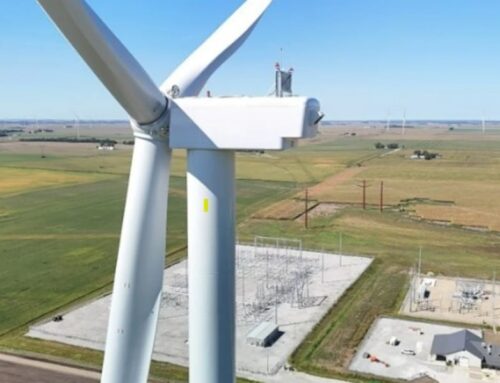Jesse Marquez, tireless defender of L.A. port communities, dies at 74
November 13, 2025
When Jesse Marquez walked into the Los Angeles harbor commission hearing room in 2013, he didn’t bring a consultant or a slideshow. He brought death certificates.
Each sheet of paper, he told the commissioners, bore the name of a Wilmington resident killed by respiratory illness. Wedged between two of the country’s busiest ports, the neighborhood is dotted with oil refineries, chemical plants, railyards and freeways. It’s one of several portside communities known by some as a “diesel death zone,” where residents are more likely to die from cancer than just about anywhere else in the L.A. Basin. For decades, Marquez refused to let anyone forget it.
He knocked on doors, installed air monitors, counted oil wells, built coalitions, staged demonstrations, fought legal battles and affected policy. He dove deep into impenetrable environmental impact documents.
“Before Jesse, there was no playbook.” Earthjustice attorney Adrian Martinez said in an interview. “What was remarkable from the beginning is that Jesse wasn’t afraid to write stuff down, to demand things, to spend lots of time scouring for evidence.”
Marquez, founder of the Coalition for a Safe Environment, or CFASE, died surrounded by family in his Orange County home Nov. 3. His death was due to complications after he was struck by a vehicle while in a crosswalk in January. He was 74.
“He was one of a kind,” Martinez said. “He had a fierce independence and really believed in speaking up for himself and his community. He played an instrumental role in centering Wilmington in the fight for environmental justice.”
In 2001, when the port planned to ramp up operations and expand a major terminal operated by Trapac Inc. further north into Wilmington, Marquez and neighborhood organizers pushed back, winning a $200-million green-space buffer between residences and port operations.
When oil refineries evaded pollution caps through what organizers called a “gaping loophole” in Environmental Protection Agency policy, Marquez and others sued, overturning the policy and successfully curtailing pollution spikes at California plants.
And when cargo ships idled at California ports burning diesel fuel, Marquez and his allies pressed the state to adopt the nation’s first rule requiring vessels to turn off their engines and plug into the electric grid while docked.
Born Oct. 22, 1951, Marquez was raised in Wilmington, and lived most of his life there. As a child, he had a view of Fletcher Oil Co.’s towering smokestacks from his frontyard.
Years later, black pearls of petroleum rained down on Wilmington the day the oil refinery exploded.
Then 17, Marquez hit the floor when he heard the blast. Frantic, he helped his parents hoist his six younger siblings over a backyard fence as fireballs of ignited crude descended around their home, just across the street. His grandmother was the last over, suffering third-degree burns along the entire left side of her body.
“From that moment on, he’s always had Wilmington in his mind,” his 44-year-old son, Alex Marquez, said in an interview.
The memory shaped the battles he fought decades later. In college at UCLA, he crossed paths with young members of the Brown Berets, Movimiento Estudiantil Chicanx de Aztlán, and the Black Panther Party, later volunteering in demonstrations led by Cesar Chavez and Dolores Huerta.
“He started off within that movement,” Alex Marquez said. “It was his reason to bring a lot of different communities into his work.”
After a career in aerospace, he began organizing in earnest in the 1990s, aligning with groups such as the Natural Resources Defense Council and Coalition for Clean Air to oppose port expansion projects.
When his sons were old enough, he brought them along to photograph and count oil wells, later folding them into his other projects.
He described his father as a man of contrasts.
“When it was time to work, he was the most serious, stern, no patience,” Alex Marquez said. “But the minute the job was done, he completely transformed. He was your best friend who brought a roast turkey and a six-pack of beers. He partied and relaxed better than anyone I’ve ever met.”
Marquez’s home was always filled with dogs — he jokingly called his lawyers his “legal beagles,” Martinez recalled. He loved reggae music, dancing and was an amateur archaeologist. He kept a collection of colonial maps tracing the migration of the Aztec people, part of what his son called “his love for Native American and Aztec culture.”
He founded CFASE with a group of Wilmington residents. After learning about the port’s expansion plans, he hosted an ad hoc meeting at his home. There, residents shared their experiences with industrial pollution in Wilmington.
They talked about the refinery explosions in 1969, 1984, 1986, 1991, 1992, 1995, 1996 and 2001.
“Then someone says, ‘Well, I have two kids and they have asthma,’” Jesse Marquez recalled in a media interview in January. “And then someone else says, ‘All three of my kids have asthma — My mom has asthma — I have asthma.’”
The group would play a central role in developing the Port of Los Angeles and Port of Long Beach’s landmark Clean Air Action Plan and Clean Truck Program, which replaced more than 16,000 diesel rigs with cleaner models.
It pushed for zero-emission truck demonstrations, solar power installations, and won millions of dollars for communities for public health and air-quality projects.
The coalition helped negotiate a $60-million settlement in the seminal China Shipping terminal case — securing local health grants, truck retrofit funds and the first Port Community Advisory Committee in the U.S. — and later helped establish the Harbor Community Benefit Foundation, which funds air filtration, land use, and job-training initiatives across Wilmington and San Pedro.
Marquez’s group also fought off proposals for liquefied natural gas terminals, oil tank farms and hydrogen power plants.
Since 2005, diesel emissions at the Port of Los Angeles have plummeted by 90%.
Now Alex Marquez finds himself suddenly in charge of the nonprofit his father built.
He’s been learning to manage the group’s finances, fix its monitoring equipment and reconnect with its network of allies.
“It’s literally been a crash course in how to run a nonprofit,” he said. “But we’re keeping it alive.”
In Wilmington, residents point to visible symbols of Marquez’s work: the waterfront park, the electrified port terminals and the health surveys that documented decades of illness.
“He left us too early, but a movement that was just budding when he started decades ago has now blossomed into national and even international networks,” Martinez wrote in a tribute to Marquez.
Marquez is survived by his sons Alex Marquez, Danilo Marquez, Radu Iliescu and, the many who knew him say, the environmental justice movement writ large.
Search
RECENT PRESS RELEASES
Related Post


